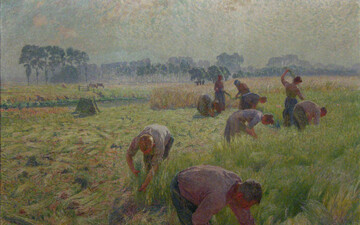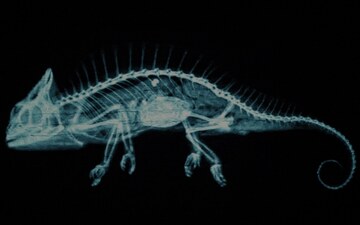-
That when cyanobacteria arose 2 billion years ago and filled the atmosphere with oxygen which killed off most species and removed methane from the air so temperatures crashed and the entire planet was encased in ice, this didn’t quite extinguish all life but eventually led to the rise of eukaryotes that turn oxygen back into carbon dioxide and later those eukaryotes banded together into multicellular teams like you.
-
That there’s been a 93% decline in stomach cancer deaths over the past 100 years—from by far the biggest killer among cancers to one of the smaller ones—and mostly this was an accident, it happened because better food refrigeration reduced infections of H. pylori, a bacterium that wasn’t even identified until 1982 after most of the decline had already happened.
-
That the coefficient of thermal expansion for concrete is 1.1 × 10⁻⁵ / °C while the coefficient for carbon steel is 1.2 × 10⁻⁵ / °C which is close enough that steel-reinforced concrete buildings don’t crumble when the temperature changes although they won’t last for centuries like ancient Roman pure-concrete structures have.
-
That we evolved to communicate mostly via sound which can mostly be stored and transmitted using simple technologies like ink on paper or etching in wax, meaning we didn’t have to bootstrap, like, capture and transmission of 3-D spatiotemporal fragrance patterns whilst having no way to exchange ideas other than direct person-to-person contact.
-
That if I was a fish I would live in unending terror of getting eaten by a bigger fish, but presumably fish don’t feel that way because when evolution adapts a creature to an environment it would be counterproductive to wire them to experience life as torture, although it’s not clear this is true and I have no idea why or how evolution would set a hedonic baseline.
-
That 85% of people in the world have toilets and that number has been improving by 1.5% per year for the last two decades.
-
That 25/12 ≈ 1.3348 ≈ ⁴⁄₃ and 27/12 ≈ 1.4983 ≈ ³⁄₂ which who cares except if you discretize the frequencies of sound so frequency goes up by a factor of 21/12 at each step, then combining tones 12 steps apart gives an octave which sounds good and combining tones 5 steps apart gives a perfect 4th which sounds good and combining tones 7 steps apart gives a power chord which sounds amazing and so Western music is possible, although it’s insanely-annoying that 25/12 isn’t exactly equal to ⁴⁄₃ which leads to grungy issues like equal temperament vs. just intonation tuning.
-
That it’s pretty rare for an asteroid as large as Chicxulub to hit the Earth and if anything it’s unusual that we were hit by one only 66 million years ago.
-
That Brussels sprouts used to be terrible but in the 1990s we noticed that was because of glucosinolate and then seed companies found old low-glucosinolate varieties and cross-bred them with modern high-output varieties and now Brussels sprouts are great and also that this was all evidently seen as natural enough not to trigger team no-science-in-my-food.
-
That life was born with cells at war and it was war war war until at some point multicellular life figured out to make immune cells and then train them to recognize every home cell and kill everything else and this worked so well that you can walk around all day barely thinking about the fact that you’re swimming in a soup of billions of enemies constantly trying to kill you.
-
That often there is a BIG PROBLEM that could have APOCALYPTIC CONSEQUENCES and we worry and worry and then it gets solved or goes away—like panda extinction or mask shortages or rare earth shortages or monkeypox or Zika or SARS-CoV-1 or crime in the 80s or peak oil or programmer salaries getting annihilated by outsourcing—and after it goes away we immediately STOP PAYING ATTENTION which we shouldn’t do because surely our past worries have much to teach us about our future ones.
-
That North Americans and the Dutch are right and peanut butter is good and all the peanut butter deniers are wrong, which is good because North Americans and the Dutch could use a win in culinary affairs, and also did you know it is known in Holland as “peanut cheese” which I guess is a testament to the power of the Dutch butter lobby?
-
That all large institutions everywhere anecdotally seem to be filled with the most grotesque waste and inefficiency, which is bad, sure, but given that our quality of life is as it is, it suggests that if we could find an even-moderately-efficient way to organize human activity, we might flourish even harder than we do now.
-
That electric leaf blowers now exist and perhaps we can develop a new understanding that it’s chill to not spew intermittent pitch-shifting mechanical shrieking sounds at deafening volumes all the time everywhere?
-
That for billions of years bacteria captured energy from the sun and then died and sank to the bottom of the ocean and were covered with sediment and cooked into hydrocarbons and it took a long time for humans to evolve, which is good because all that stored energy has made our lives much better and perhaps allowed us to bootstrap a technological civilization that would be otherwise impossible.
-
That after the Mongols conquered half of Eurasia and killed 11% of the world’s population, they happened to have a drinking culture adapted to seasonal availability of low-alcohol beverages, and after they had subjugated everyone and had plentiful access to high-alcohol beverages that culture produced astonishing spectacles of alcoholism in most leaders, meaning short lifespans, disorganized leadership, frequent successions, and political fragmentation, which plausibly spared much of the world from further destruction.
-
That ghosts don’t exist, which wasn’t obvious a thousand years ago.
-
That when babies are delivered caesarian, we’re experimenting with feeding them a tiny bit of mom’s poo to get the old microbiome started, and hopefully this will reverse the increased diabetes and autoimmune problems we see in the current caesarian-delivered population, though the causal relationship isn’t 100% clear.
-
That MSG—a standard amino acid glued to a sodium atom—is naturally present in lots of things like tomatoes, mushrooms, grapes, and parmesan cheese, meaning Italian food is high in MSG, which is good because MSG is harmless and delicious should be enjoyed by everyone including people with psychosomatic issues.
-
That the best therapy for sickle-cell disease has long been to use chemotherapy to kill the patient’s bone marrow and then transplant marrow from a donor, which was good except most people couldn’t find immunologically matched donors, and we’ve known for a long time that we should be able to extract stem cells from the patient’s own bone marrow and then use gene therapy to modify them to make healthy red blood cells and then re-implant them, but now this finally, finally, finally seems to really work, which not only cures this horrible disease but also confirms that we weren’t missing something fundamental, raising the odds that gene therapy will be able to do the other things we hope of it.
-
That we now have methods to detect the sex of chicken eggs during incubation—like cutting a tiny hole with a laser and testing for female hormones—and it seems like we are on track to stop throwing half the chickens that are born into a shredder and more generally maybe this suggests that technology won’t just help us optimize and scale the cruelty of nature but may also make it easier to take the welfare of non-human animals seriously.
-
That it’s unclear if the death penalty deters crime, it’s debated and murky, which if you’re uncomfortable with the death penalty is fortunate because if it had an undeniable deterrent effect, you’d face some hard choices.
-
That all the types of atoms that can sustain a fission chain reaction are heavy and so tend to spontaneously decay and stop existing, plus the earth is very old, meaning that none of those atoms exist on Earth anymore except uranium-235.
-
That uranium-235 only comes mixed with 100x as much uranium-238 which is chemically indistinguishable, and the best known way to separate them is to mix with fluoride to make a gas and then spin that gas for months at 500 meters per second, which is obscenely hard, thank god, although the French are developing an ingenious chemical enrichment method, which, why, why are you doing that, it would move enrichment to the domain of standard chemical engineering technology, please stop.
-
That the light on earth could conceivably come from a sun that is small and close or one that is big and far and in fact it is very big and very far, which doesn’t matter much short-term but long-term it might be handy to have a totally automated fusion reaction 1.3 million times the size of our planet if we want to do something ambitious someday.
-
That while the universe seems incomprehensible—why is there a universe, why are we conscious, why is the fine structure constant 1/137.036—maybe we’re all just very very stupid—do squirrels agonize about What it All Means—and maybe it all does make sense somehow and maybe there’s a grander intelligence out there in spacetime somewhere that gets it.
-
That Comfortable and dermatological effects of hot spring bathing provide demonstrative insight into improvement in the rough skin of Capybaras (Inaka and Kimura 2021), “Comparison of facial expression of Capybaras between before bathing and during bathing. (A) Scoring table of comfortable status in Capybaras. When the Capybaras feels comfortable, the eyelids close and the visible area of the eyeball becomes smaller, and the ears are gradually pulled back against the body. (B) Eye score showed significant difference between before bathing and during bathing (p < 0.01). (C) Ear score showed no significant difference before and during bathing.”
-
That washing machines.
-
That shoes.
-
That most molecules can be “flipped” to get another stable version of the same molecule and early life seems to have randomly settled on one version and now everything expects it so in principle you could create a “mirror human” with everything flipped, which is good because it’s insane and they would be immune to infectious disease but also to food so to keep them alive you’d need an entire mirror life ecosystem, although where is my mirror life science fiction, like say a rogue organization makes mirror cyanobacteria which feed only on light and achiral molecules but nothing can eat them so they cover the planet—it’s not clear why that hasn’t happened naturally BTW, be grateful for that too—and scientists are forced to release a succession of more complex mirror organisms designed to prey on the previous ones and it spirals and at the end we learn the true mirror life is the friends we made along the way.
Nov 2022

even more
That you can apparently learn to meditate your way into a state of profound relaxation and bliss and pleasure on par with heroin or orgasm, which was certainly not on my bingo card, which is good because bliss is good,...

Report back on how it goes
Should you try to make your life historically significant? Or should you specifically not do that? Is there too much glamour in modern life, or too little? Why doesn't basketball have height classes, like boxing has weight classes? Would a...

even more
That Earth is hot—maybe half from radioactive decay and half from leftover heat from when the planet formed—and heat is atoms jiggling around and the faster they jiggle the more often electrons absorb some kinetic energy and spit it out...

insensitivity to evolution and engineering?
We all have our peculiarities. One of mine is an obsession with tunnel man. A few years ago, a 31-year-old man inherited some land and decided—for no particular reason—to dig a tunnel. He found that he liked tunneling so he...

Maybe they're bad
I wouldn't suggest literally dismantling Harvard. (Caution is advised before destroying your most successful institutions.) My real thesis is more like: College admissions are (1) highly competitive and (2) consequential. Maybe those alone are bad? Maybe we should think about...

An unhinged polemic
Say that when people apply for their first driver's license, 1% get Executive Platinum licenses. For life, they get free use of toll roads and can drive 20% over the speed limit. People argue—fiercely argue—if these should be awarded based...

Report back on how it goes
1. Is the existence of the Guinness Book of World Records a positive or a negative for humanity on net? 2. Bragging about material possessions is low-status in much of the West, forcing people to jostle through subtle wealth cues...

subterfuge, berries, Bayes, billboards, stop signs
Some time ago, I was driving somewhere with a friend and I claimed that someone was operating with subterfuge. There was an odd silence, after which my friend quietly asked, 'What was that?' Something was wrong. Was she offended? I...

We believe stuff because it benefits us to believe it, not necessarily because it is true.
We believe stuff because it benefits us to believe it, not necessarily because it is true. Phrased that way, it seems like an obvious point—of course evolution made us like that, what else could it have done? But this has...

A debate about humanity's ultimate adversary
Evil. The problem is people doing bad things that they know are bad. Everyone just needs to stop demanding bribes and littering and murdering each other. Moral confusion. No, in reality, most people try to do the right thing most...

The puzzling movement reduce diagnostic tests because of harmful downstream treatments
1. Say we’re detectives. We’re getting a drink and have the following conversation: Me: Ah, this case is killing me. You: Then why don’t you go talk to Big Eddie? Me: Nah—that would do more harm than good. You: How’s...

Dark patterns in social behavior
I was working in a cafe when a woman sat nearby and asked me if there was anywhere in the neighborhood she could see some art. Hoping to get back to work, I made a couple of suggestions. She asked...

Do we really know what the future needs?
The argument for long-term thinking goes something like this: ● There are X people alive today. ● In the future, there will be Y≫X people alive. ● All people have equal moral weight. ● Therefore the state of the world...

Here are some things that I hated as a student. At the time, I thought my teachers didn't understand or care how terrible they were.
In a recent post, Parrhesia suggested that course grades should be 100% determined by performance on a final exam—an exam that could be taken repeatedly, with the last attempt being the course grade. (See also the discussion at r/slatestarcodex.) The...

When does talking about a plan ruin it? Marriage, CO2, religion, self-promotion, edgelords, and Chinese medicine.
You're in love. The two of you want to share the rest of your lives. So, being good game theorists, you have a romantic dinner and plan how to align your interests for mutually beneficial optimal strategic behavior. Your goals...

30 underrated reasons to be thankful, starting with the fact that atomic bombs don't ignite the atmosphere
That our atmosphere has low enough pressure and levels of deuterium that nuclear fission in air doesn’t cause hydrogen atoms to fuse into helium, meaning that the first nuclear bomb test in 1945 didn’t in fact ignite the atmosphere and...















